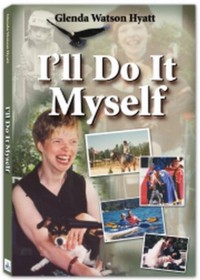Traditional Media versus Social Media Coverage of the Paralympics
Yesterday I was interviewed via email by CBC Radio about “Social Media and the Paralympicsâ€. It was to air this morning on CBC’s Early Edition. However, my interview responses were cut from show, which raises a larger question about traditional media and representation of people with disabilities.
First, my written responses to the interviewer’s questions:
How important is the role of social media in the Paralympic experience?
The role of the social media is crucial in the Paralympic experience. I have found that many people didn’t even know the Paralympics existed because traditional media do not cover the world’s second-largest sporting event. Social media is increasing awareness and building interest in these Games. Once people know about the Paralympics, they are wanting to know more, to see more; social media is filling the gap where mainstream media is failing. Also, social media is also being used to put pressure on traditional media for more coverage of the Paralympics; for example, the Facebook page "Encourage CTV to Cover More of the Paralympics". Yesterday CTV announced it’ll air live the Closing Ceremonies across Canada. A result from the outcry via social media? Quite possible. Without social media people would experience very little of the Paralympics unless they are at the venues.
How does online help YOU experience the Games?
Social media has deepened my experience of the Games. I have tweetdeck open all day and am monitoring the hashtag #paralympics, so I get results from events immediately rather than needing to wait until the day’s highlights on CTV. I first heard of Brian McKeever’s gold in cross country skiing on Twitter. I also see photos from people’s experiences and links to blog posts and online news stories related to the Games. Paralympicsports.tv allows me to watch events that I wouldn’t see otherwise. Thanks to social media and online coverage I’m able to experience the Paralympic Games in a way I couldn’t relying solely on mainstream media coverage.
What’s the difference between social media during the Olympics vs the Paralympics?
The difference between social media during the Olympics and the Paralympics is there seems to be more focus on the athletes’ stories and the actual events, like what is ice sledge hockey and how does wheelchair curling differ from regular culling. There is definitely less coverage from the various pavilions , houses and other party-related events; no doubt because there are fewer. And, as I mentioned before, there’s an unified rallying voice for more coverage by traditional media. The social media has created a hunger, a market for the Paralympics.
Often in situations like this I would record a phone conversation and play it on air. From what I’ve read of your bio, I understand that we won’t be doing that, but I’d like to explain why. Would you mind telling be how you explain your ability to communicate, so I don’t make a mess of it?
Due my cerebral palsy, my speech is significantly impaired making verbal communication with those not well-versed in Glenda-ish futile. The written word is my most effective means of communication. Given enough preparation time I also use text-to-speech technology, although I use that mainly when giving presentations and speeches.
Despite my last response, I was not included in the story “Social Media and the Paralympicsâ€. Yet, included were two local bloggers – Rebecca Bolwitt aka Miss604 and Andrea of 2010VanFan – and a professor from the School of Communications at Simon Fraser University (coincidentally I have a communications minor from SFU).
I can’t help but wonder if my responses were excluded because I am unable to do a phone interview, like the others did. My method of responding didn’t fit their format.
This raises a larger question: how much access or representation do people with disabilities, particularly those with significant physical disabilities, have in traditional media?
I mean, we’re talking about the world’s largest sporting event for people with disabilities and how traditional media provides minimal coverage, then traditional media cuts a well-known blogger with a disability from a story on how the social media is covering the Paralympics. WTF? What gives?
Social media is definitely more accessible to those of us with disabilities, enabling our otherwise marginalized voices to be heard for the first time in history.
If you enjoyed this post, consider buying me a chai tea latte. Thanks kindly.
 Subscribe via RSS
Subscribe via RSS



